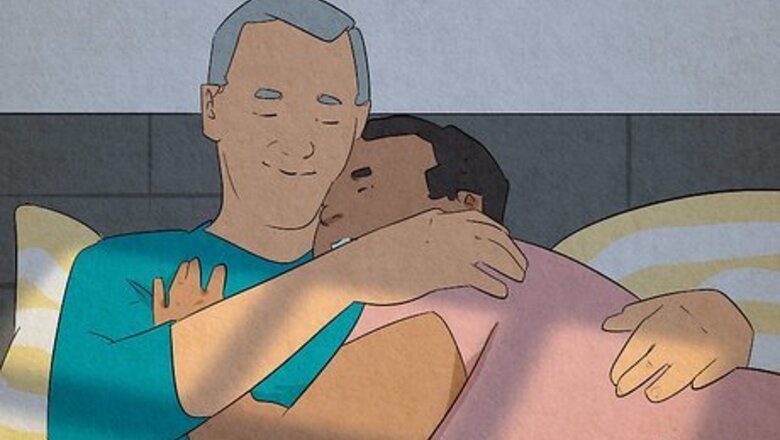
views
- Being a professional cuddler is about more than giving hugs and snuggles—it requires empathy and compassion.
- Setting boundaries is crucial for becoming a cuddle therapist.
- Listening and adhering to a client’s needs is an essential part of a cuddler’s job.
What is professional cuddling?
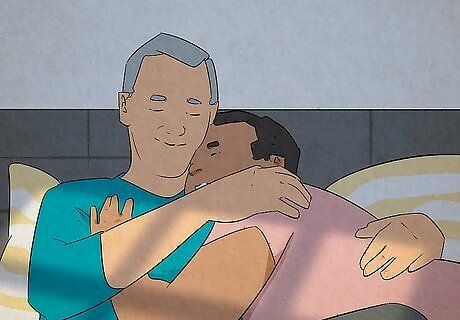
Professional cuddling is a form of therapy that combines platonic touch and companionship. This unique therapy is more than just hugs; a cuddle therapist must listen, acknowledge, and soothe a client using sensory and communicative skills. Studies have shown that cuddling and snuggling improves overall health, as the practice releases the “feel-good hormone” oxytocin. This hormone helps you feel all warm and fuzzy inside while lowering blood pressure and boosting the immune system. Cuddle therapy utilizes this to make people feel safe and secure.
What do professional cuddlers do?

Professional cuddlers are trained to alleviate stress, anxiety, and loneliness with physical touch. Cuddle therapists are specifically trained in the art and science of cuddling to create a trusting and equal space for clients. These certified individuals provide therapeutic support through hugs, spooning, and gentle massage. They build relaxing, welcoming environments and listen to their clients' needs while maintaining boundaries. Cuddle therapists encourage clients to say “yes” to touches they want and “no” to touches they don’t want. This establishes boundaries that help clients feel safe, heard, and cared for. Essentially, anyone can be a cuddler, but only those trained in professional cuddling can become certified cuddle therapists and utilize cuddling as a career.
How to Become a Professional Cuddler

Enroll in a training course. Professional cuddling isn’t as intuitive as it sounds. To be labeled a professional cuddler or cuddle therapist, you must undergo training to get certified. These training courses will teach you the art and science of cuddling, how to set boundaries, and the best ways to mentally care for others. Course length varies depending on the company you’re training with. Some courses last 3 days, while others last a month or require at least 30 hours of participation. Cuddlist and Certified Cuddlers offer online training and certification to become a professional cuddler.
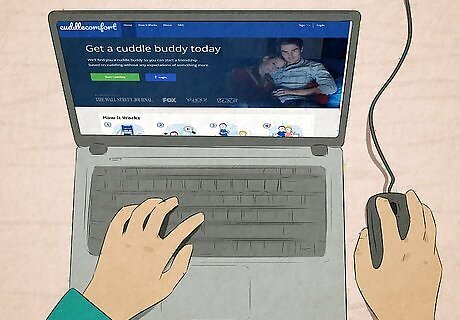
Apply for a position with a cuddling company or service. Once you're certified as a cuddler, reach out to local cuddling services to see if they’re hiring or submit an application to be a cuddle therapist associated with Cuddlist or Cuddle Comfort. Expect to give your ID and be background checked when applying to work with a cuddling company or service. Cuddlist requires their cuddlers to be company trained and certified, and a monthly fee of $39.99 is required to be a part of the community. Cuddle Comfort doesn’t require any training or certification before applying. This may be a good starting point if you want to get some experience under your belt and see what the job is like.
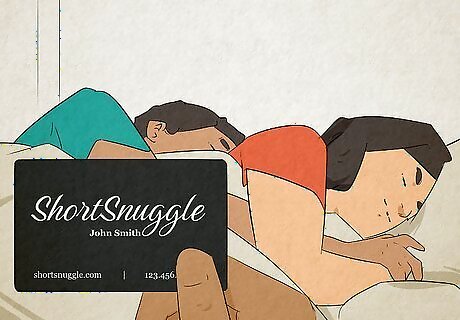
Start your own cuddling business. If working for a corporate company isn’t for you, try self-starting a cuddling service of your own. Establish a business and marketing plan, and set up a website that showcases your services and features a way to book sessions. This will allow you to establish your own hours and pay rate. Many larger companies started their journeys as self-starters advertising on Facebook or other social media platforms. Don’t be afraid to talk to people about what you do, especially as you grow your company. The more you talk, the more word you’ll spread!
Skills You’ll Need
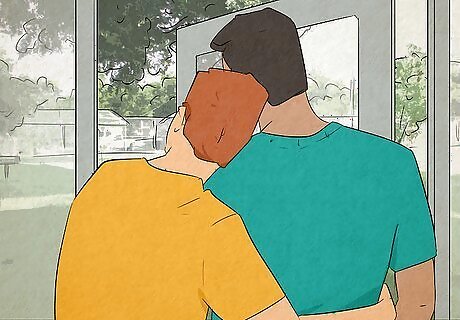
Nurturing Personality To be a professional cuddler, you need to have a warmth about you. Clients want to come into a cuddling session and feel protected and cared for. Having a nurturing or empathetic personality can help you connect and soothe clients naturally. Being a nurturer also includes being a giver. You may want to become a professional cuddler because you love giving hugs, but you need to be able to put the client’s needs above your own during a session.

Love of Touch Cuddle therapists are in close physical contact with others every day. Before you take steps to become a professional cuddler, ask yourself, “Do I like being touched by people I don’t know personally?” If you’ve answered no to this question, professional cuddling may not be the career path for you.

Listener Part of being a professional cuddler is actively listening to clients. Having the ability to listen to your clients before, during, and after a cuddle session will help you give them the perfect amount of touch and care to help them thrive. Being a strong listener also contributes to setting fair and firm boundaries.

Entrepreneurship Professional cuddling is a solo career at the start, so being an entrepreneur will help you right away. Having the drive to succeed and expand is crucial as you need to put in the work and hours to get certified, promote yourself, and grow your small business.
Is professional cuddling sexual?
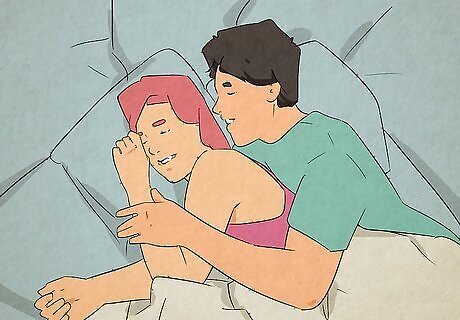
Professional cuddling is not sexual. Cuddle therapists are specifically trained in platonic touch. Contrary to popular belief, therapists do not engage in sexual or romantic touch with their clients. Both the client and cuddler are fully clothed during a session, and waivers are filled out expressing the platonic consent of each party during a consultation.
How to Stay Safe
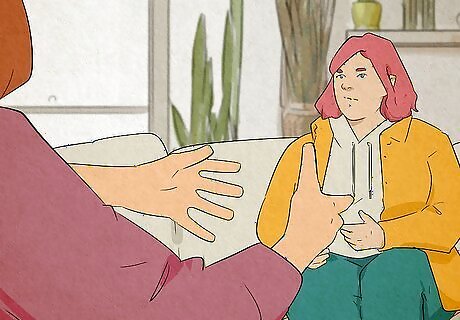
Set personal boundaries. As a professional cuddler, you’ll get physically and emotionally close to lots of people. Make sure you take time to refill your own cup, especially since you’ll be putting most of your energy into others. Setting personal boundaries that restore your energy could look like: Meditating after a cuddle session Allowing sessions to only run for a set amount of time Scheduling a specific number of sessions a day Cuddling with loved ones on your time off
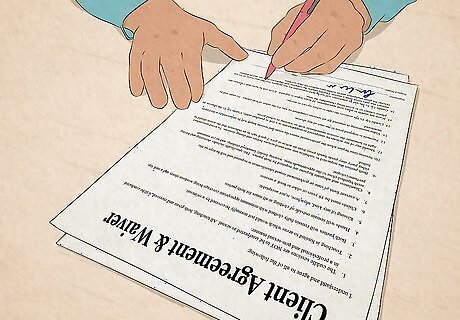
Compose waivers for clients to sign before a session. During a consultation with a client, ask them to sign a waiver detailing your services before any cuddling begins. This document should include the rules of your services, the risks involved, hygienic standards, and the boundaries set between you and the client. Seek help from a lawyer to draft and compose the best waiver possible. Write a waiver even if you work with a bigger company. Double-check with your boss, supervisor, or representative to see if your company already has a drafted waiver you can use that states the company’s guidelines and risk factors.

Ask your client questions. While consulting a potential client, ask them questions about their health, so you’ll be aware of any health conditions before starting a session. As a cuddle therapist, it’s your job to give clients the best and most appropriate care, but you also need to consider your own health. Never take on a client who may put your own physical health at risk.
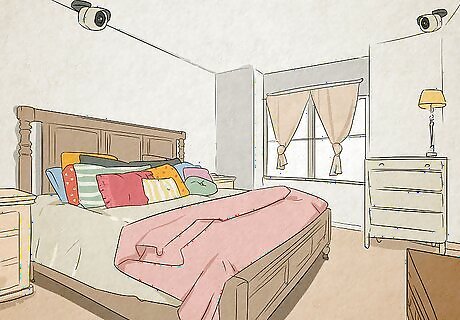
Set up security in your cuddling space. Some professional cuddlers opt for placing cameras inside cuddling rooms or within a cuddling studio’s space. This can provide an extra level of security, as security footage documents any potential ill-will or wrongdoing.
How much do professional cuddlers make?
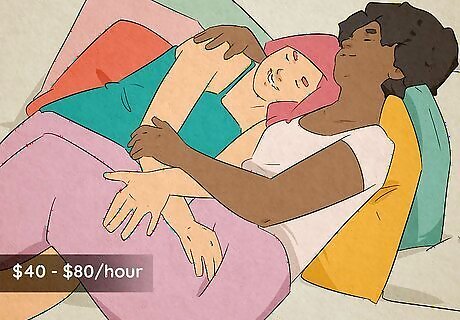
Professional cuddlers make between $40 and $80 an hour. The salary of a cuddle therapist varies depending on the company or service they work for and if they’re self-employed or funding their own business. A cuddling session's length and time of day also affect the hourly rate. For example, an overnight session could cost around $400. Keep in mind that if you work for a larger company, the company may take a cut of your commission to pay the taxes and fees of your employment.




















Comments
0 comment